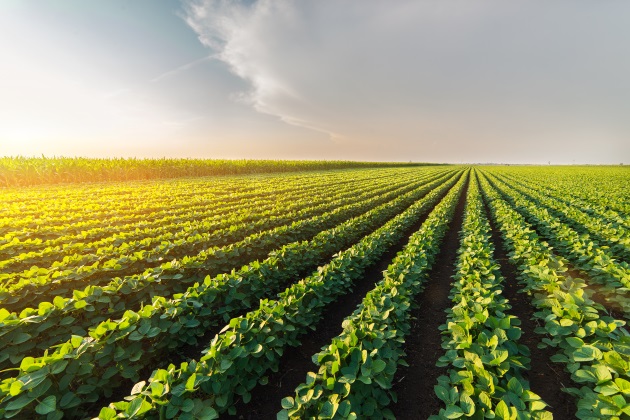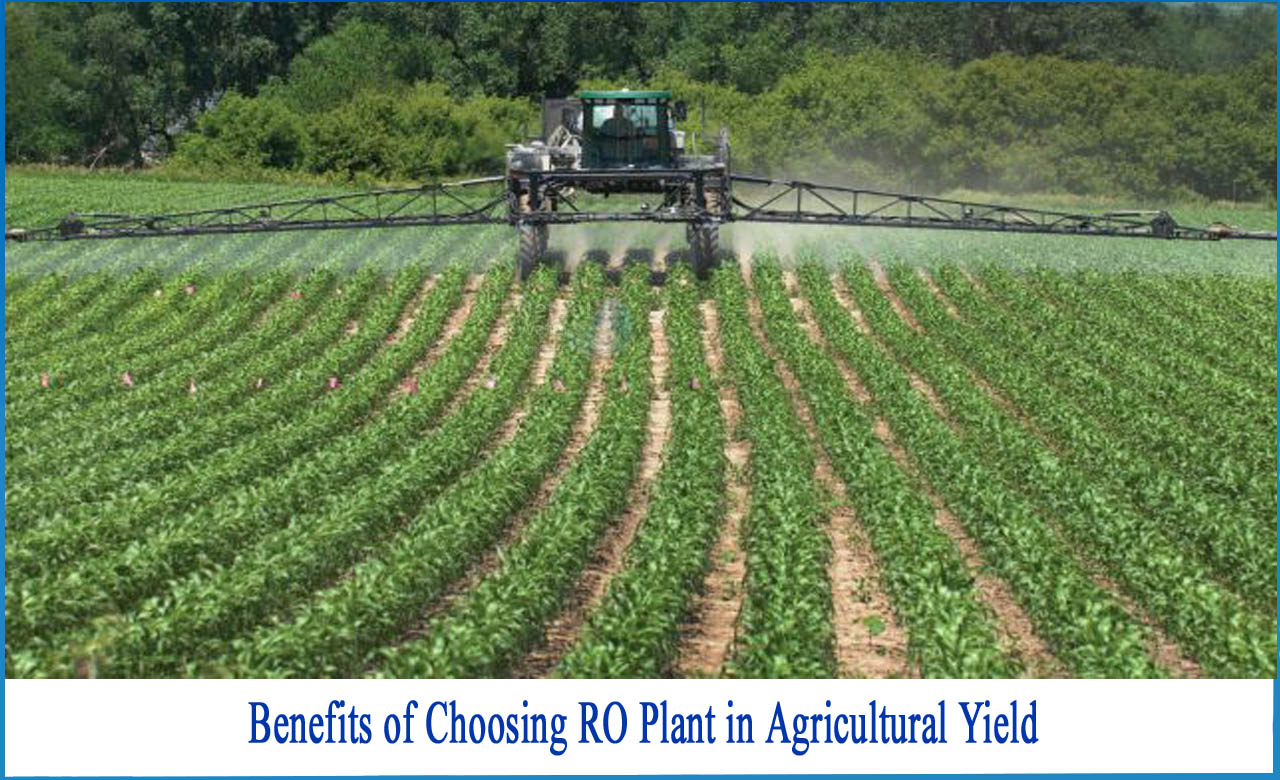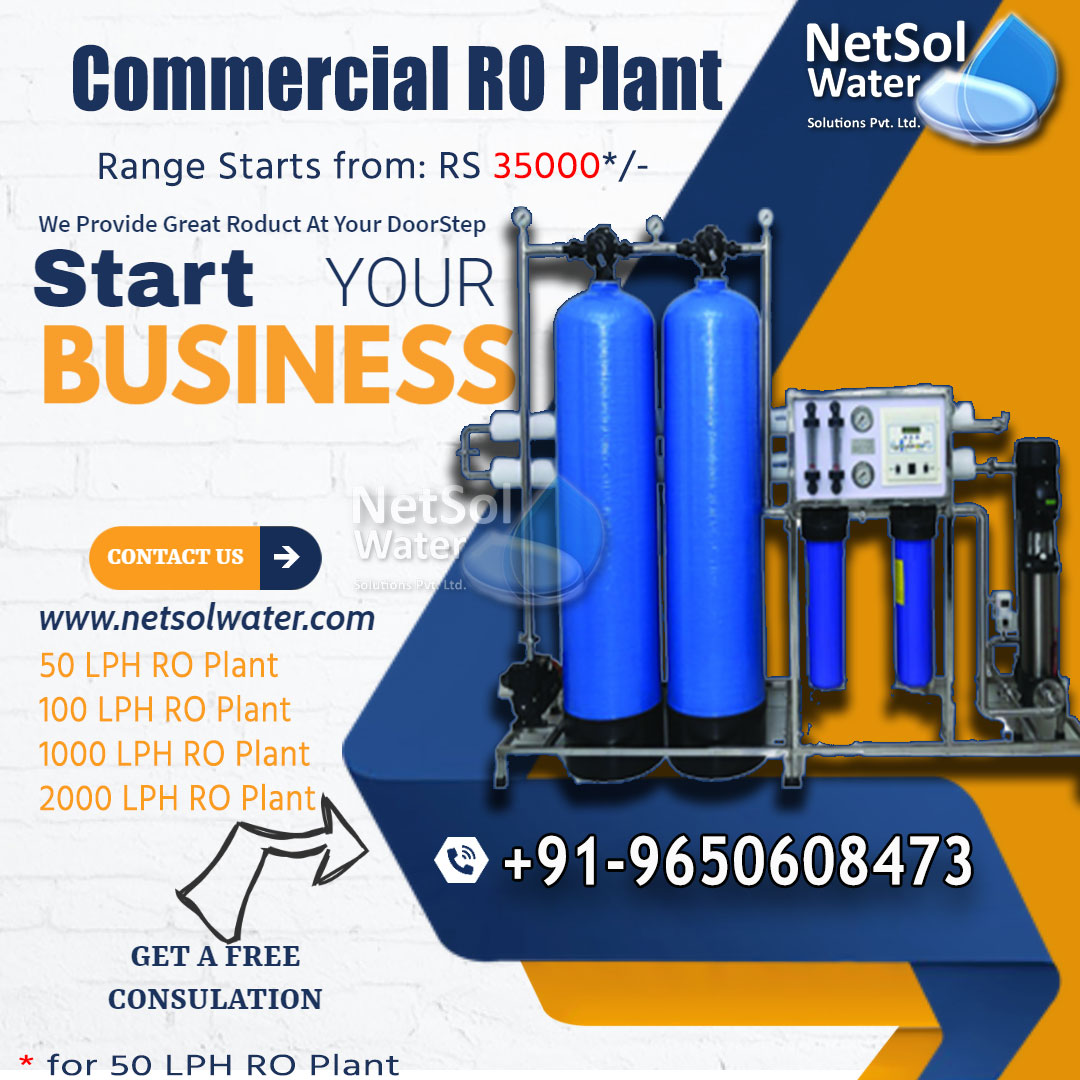The significance of water for agricultural purposes cannot be overstated, as it is this resource that drives food growth. Water is required not only to develop crops but also to rear livestock. There is a direct relationship between the amount of water applied in the agricultural sector and the amount of crops produced.

Irrigation is the most common usage for freshwater. The majority of this water comes from groundwater, which is in short supply. Aquifers are depleted or poisoned each year, making supplies of fresh water for agriculture increasingly scarce. Farms all across the world have begun to use alternate strategies to conserve water and maintain this valuable natural resource. The usage of reverse osmosis water treatment systems in cultivation houses for the latest plants in greenhouses or aquaculture growing is not a secret. For decades, the vast majority of professional producers have relied on these commercial agricultural water filters.
Environment Protection
Irrigating farms hasn't always been as healthy as it once was. Water is not good for crop quality since it contains various pollutants, including chemical components from industrial waste and local sewers. The odds of fertile soil are raised and crop quality is improved by installing reverse osmosis systems for agriculture.
Provides Clean and Reusable Water
In today's world, clean and reusable water is essential for farming. In farms, a RO water filtering system is a necessary because it provides clean, reusable water to your plants.
Soil Quality
Farmers have long found that modern farming practices and fertilizers help them produce high-quality crops. Still, the introduction of reverse osmosis water filtration devices has improved soil quality to the point where plants no longer require chemically treated nutrients to grow their harvest.
Prevents Water Depletion
RO water technology prevents water depletion by allowing wastewater to be reused if necessary. Around 80% of farming problems are caused by rapidly dwindling water resources around the world. Water wastage can be greatly reduced by employing technology such as RO water systems.
Strengthens the Economy
Agriculture is the backbone of any country's economy. RO water filtration systems on farms will undoubtedly boost the economy and open up a slew of investment opportunities.
Reduces Low Source Water Quality
One of the advantages of installing RO in your farm is that it works effectively to convert low-quality source water into high-quality crop water. Carbonates, which are present in huge numbers in water sources, are one of the leading causes of water pollution. RO water treatment plants for agriculture not only clean the water but also removes the carbonate.
Filter System:Drip Irrigation
RO Water treatment systems in farms also use drip irrigation, which delivers water directly to the roots of the plants with minimal waste. The drips are timed, which means they reduce evaporation and improve plant irrigation efficiency.
Maintenance is easy
RO technology is not only a godsend, but it is also well-known for its low-cost, easy-to-maintain nature.
Improves Productivity
When compared to typical irrigation systems, the RO water purification systems used in farms speed plant growth and save a lot of money, thanks to its reused water approach.




